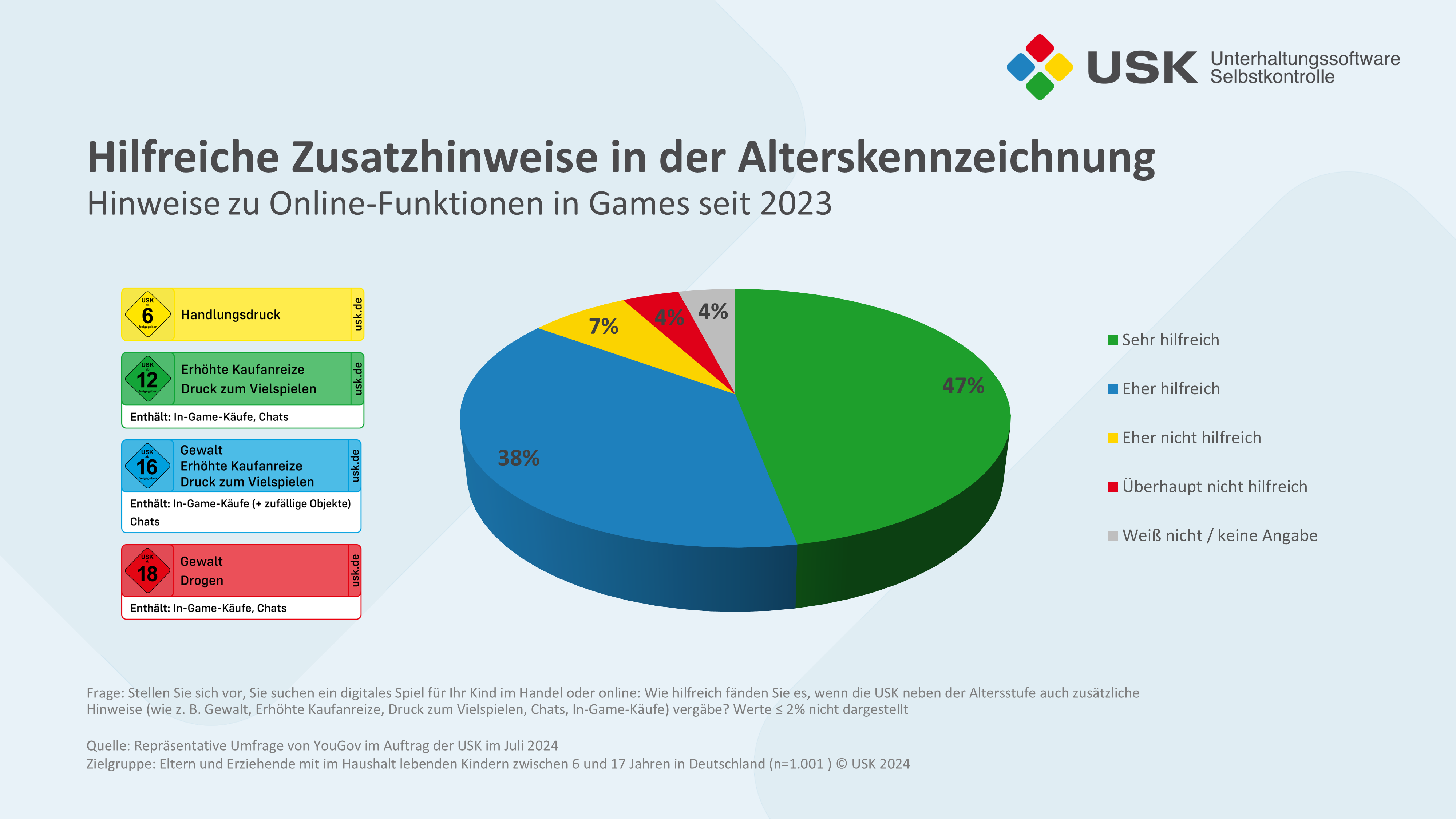Parents Rely On Labels: Germany's Regulatory Body USK Presents Study




For its 30 year anniversary, the German Entertainment Software Self-Regulation Body USK presents a study among parents, conducted by YouGov. The results see the age labels and the new classification system find massive support with German parents.
For its 30 year anniversary, the German Entertainment Software Self-Regulation Body USK isn’t only celebrating, but asserting its own importance with the publication of a study. The representative study by YouGov on order of the USK surveyed 1,001 parents of children between 6 and 17 years about youth protection.
According to the study, in more than 75 per cent of cases, children and parents choose the games together: 42 per cent of parents state that they choose the games together with their children. In 36 per cent of cases, children have to ask their parents for permission before using a game.
The study also has politically assertive reasons for USK, who is repeatedly in the spotlight of youth and consumer protection groups and politicians of all levels, most recently through the new youth protection guidelines and the body’s position on loot boxes and other dark patterns in gaming. PR wise, the results are good: More than 80 per cent of parents and educators state that the USK is an important institution and that the USK's age ratings and the extended age ratings offer important support in the selection of digital games by providing additional information. Three quarters of parents even know the meanings of the various USK labels. The most common point of contact with the USK labeling in 74 per cent of cases is the game packaging, followed by online gaming platforms with 56 per cent.

Since January 2023, in addition to the age labelling, newly classified games have been given additional information on the reasons for the age rating, such as ‘violence’ or ‘pressure to play a lot’, as well as online functions such as ‘chats’, ‘in-game purchases’ or ‘location sharing’. These additional tips are seen as helpful by 85 per cent of parents. Parents of children who play frequently find the additional information particularly helpful.
“The study shows that parents and educators take the protection of minors in games seriously and that the USK's age labelling provides key guidance. The positive signal: thanks to the right tools such as age labelling, additional information and youth protection settings on consoles and devices, child and youth protection is already being actively implemented in many places in families today. The data also shows where there is still potential. In particular, parents would like more information on technical youth protection settings or, for example, standardised age labelling on all platforms,” Elisabeth Secker, Managing Director of the USK.
More information from the full survey will be shared at the 30 year festivities of USK on 9 October 2024 in Berlin.








